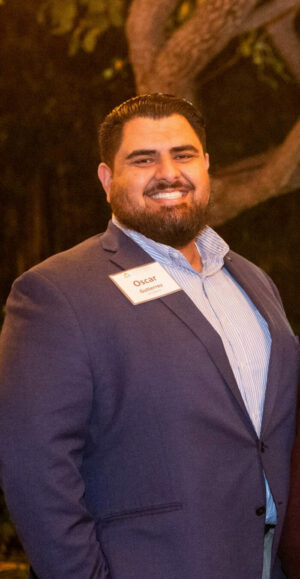
Ken Saxon: How You Can Fight Back Against Pervasive Busy-ness
Noozhawk
October 2015

“How are you?”
“I’m so busy.”
How many times a week do you have or hear a conversation that starts this way? I’m embarrassed to say I respond like that all the time.
Even if it’s true that I’m busy (and it is), it’s not a very interesting answer to the question. Honestly, it’s just boring.
As an executive in one of our Leading From Within leadership development programs recently said to me, it seems as though many of us today hold busy-ness as a badge of honor. But to be honest, my frantic pace is not something I’m proud of. It’s something I’m working hard to get under control.
The leaders I look up to most are not swamped with busy-ness. They are more grounded than that. They know what they stand for and are good at attracting others around them who resonate with those values. And they’ve found an approach to caring for themselves in a way that sustains them in work they are passionate about.
When I think about my own tendency toward busy-ness, I know some of it has to do with my passion to make a difference in the world. But there are also less admirable instincts at work — like being a bit of a control freak who has trouble delegating.
And sometimes my prioritization is all wrong, leading me to spend time on things that in hindsight turn out not to be very important.
And it turns out that the frenzied and unbalanced way many of us live and work affects much more than just us. It may be getting in the way of recruiting the next generation of leaders.
A few years ago, CompassPoint published a study called Ready to Lead that rocked many of us who care about developing future leaders for the nonprofit sector. After interviewing thousands of emerging leaders, the researchers found that many talented up-and-comers in our agencies have seen the way top nonprofit executives live and work — and they don’t want the job!
Here are a couple quotes from one of their focus groups:
“When I came on, I thought — ‘Look at all the great things my CEO is doing. This is exactly what I want to be.’ Then, I see that she’s there from 6 a.m. to 12 midnight. She works outrageous hours — she never sees her husband. There are definitely things that you give up.”
and
“As I get older I realize so much of my life has always been, ‘I’ll sacrifice this because I’m committed to this issue.’ And approaching my 40s, I think I’ve done as much sacrificing as I can do, and there comes a point where you want to experience your life as well as be committed.”
Could it be that these emerging nonprofit leaders don’t want to answer, “I’m so busy,” every time someone asks them how they are doing? That they don’t want to sacrifice so much of that which makes life rich in order to do good in the world?
I’ve been talking to quite a few leaders recently about possible participation in our 2016 programs, and the most frequent response I hear from someone who can’t participate is “I’m so busy.”
Last year, one executive director bragged to me that everyone at her agency is a workaholic. (I wasn’t too surprised to hear recently that she’s left her job and her nonprofit is in the process of being shut down.)
In our classrooms and retreat spaces, we slow people down and cultivate a reflective space where they are more present to themselves and to others. We help them pause on all the activity and busy-ness, and to remember why they do their work.
We also provide a learning community among peers where it’s safe to talk about things like self-care and how to set boundaries that allow us to sustain ourselves.
For those of us who struggle with pervasive busy-ness syndrome, here are some strategies I’ve been experimenting with that have been helping me:
» Start my day with silence and writing and reading, before I connect in to any technology. Not only do I begin my day in a quiet and peaceful space, but I’m able to set intentions for my day that I’m often able to retain.
» I’ve been taking one day a month and not scheduling any appointments. This monthly unscheduled day allows me to breathe, to think and to catch up.
» Take a tech Sabbath. There’s a movement afoot to completely disconnect from technology for a time each week (see SabbathManifesto.com). A side benefit is re-training people in our lives that we’re not available to them 24/7.
» Go on retreat or vacation (ideally including time in nature), and intentionally disconnect. When I do this, I not only experience renewal from time away, but I tangibly feel my brain function improve as I become less scattered and get back to single-tasking.
Finally, remember that we’re all in this together. Busy-ness and distractedness and our struggles with technology are challenges we all share.
It’s a new world out there, and every one of us is swimming around in it. Let’s talk honestly with each other about what we’re experiencing, and work together to develop new strategies for reclaiming our lives and our humanity.
— Ken Saxon is board president of Leading From Within and an instructor in its Courage to Lead and Emerging Leaders programs. Click here to read previous columns. The opinions expressed are his own.



